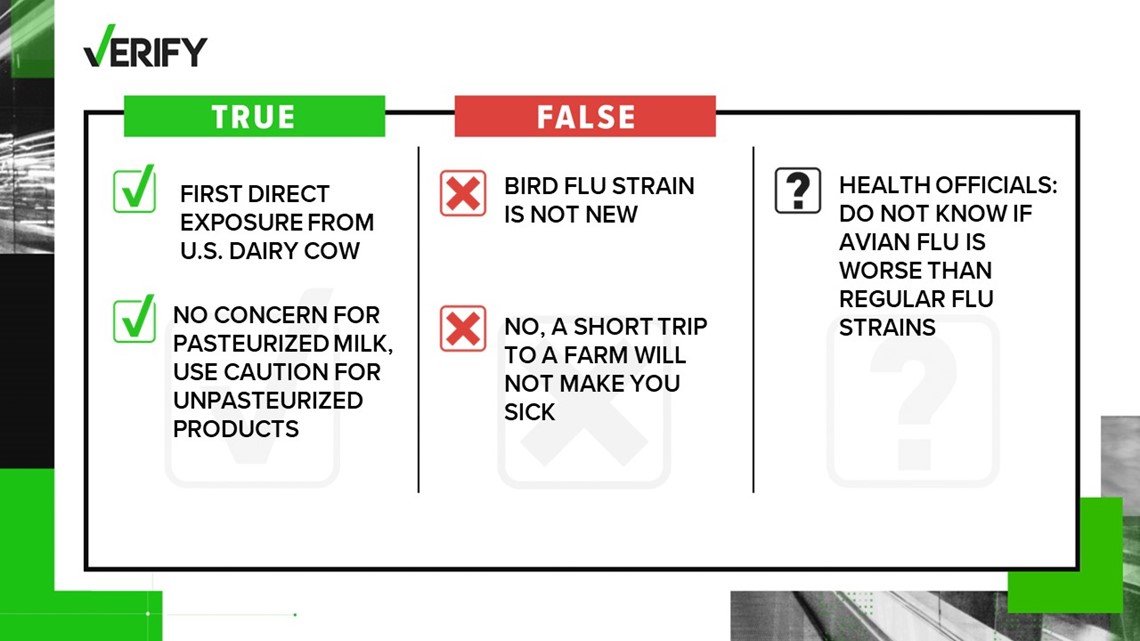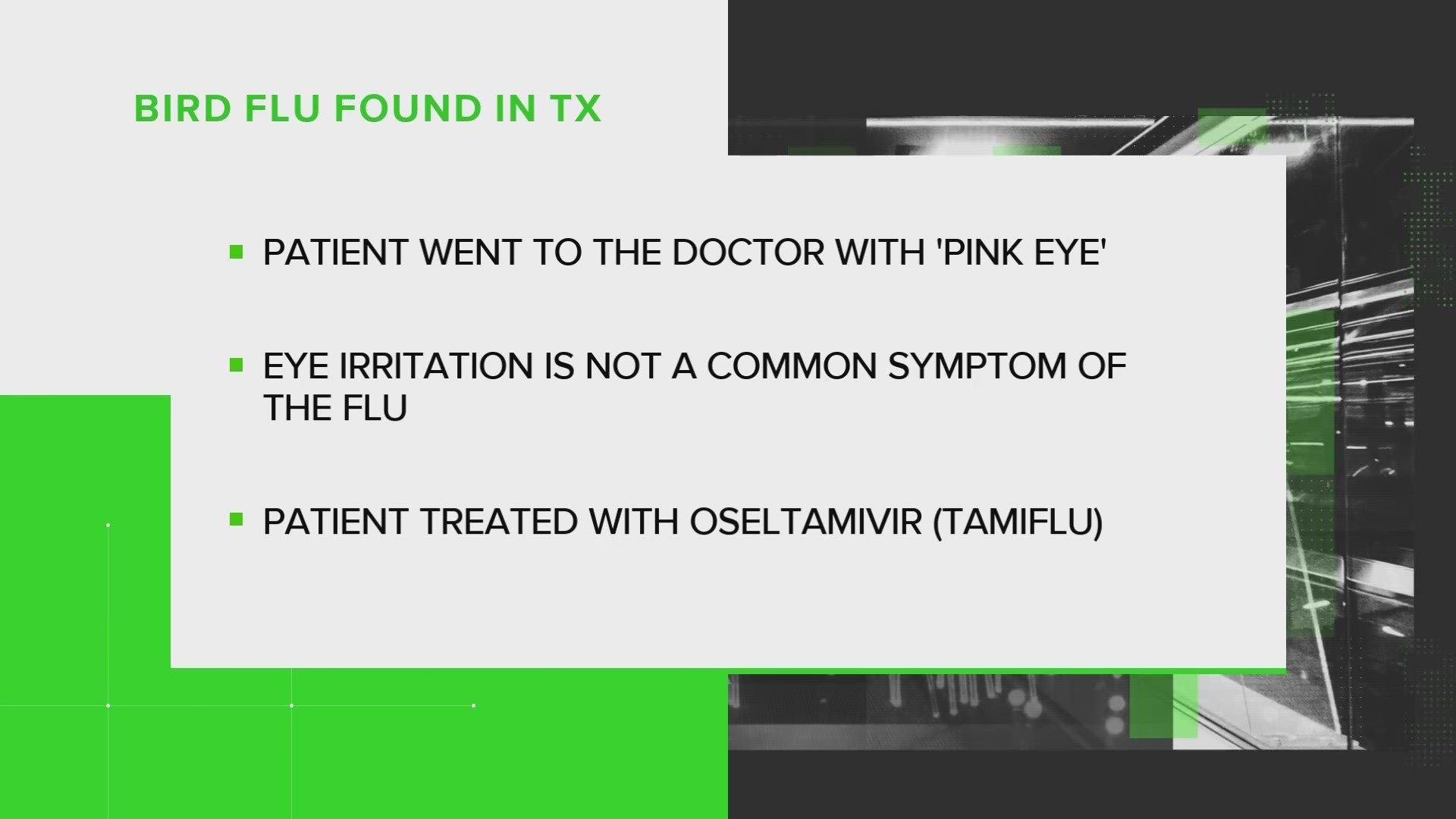TEXAS, USA — Texas reported its first human case of avian influenza, also known as the bird flu, on Monday.
The person reportedly contracted the virus after having direct exposure to dairy cattle believed to be infected with bird flu, according to the Texas Department of State Health Services. A week ago, the Texas Animal Health Commission (TAHC) announced its first case of bird flu in dairy cattle in the Texas Panhandle.
Here's what we know
- The person went to the doctor with the pink eye at the end of March and tested positive for the flu. Confirmatory testing was done by the Centers for Disease Control and Prevention (CDC) just days later.
- The person is doing well after getting treated with Tamiflu.
- The KHOU 11 VERIFY team reached out to health officials who said there was no cause for alarm to the general public.
According to the CDC, this is the second human case of bird flu in the U.S. and the first linked to an exposure of infected cattle.
The state health department and the USDA said there's no concern for the pasteurized milk supply, but people should be careful using raw or unpasteurized milk or products, like cheese.
The bird flu has been around since the late 90s. Although this virus is highly contagious, the CDC said you have to have close or prolonged exposure to infected animals or livestock to get sick.
Health officials told the KHOU 11 VERIFY team that they do not know if the bird flu is worse than regular strains of the flu because they are still investigating this Texas case.
DSHS put out an alert making sure doctors and patients have an open dialogue about symptoms and what to look out for.
"If you are sick after handling an animal, let your doctor know because there's all these diseases that we need to be thinking about," the department said.
DSHS also told the KHOU 11 VERIDY team that people should avoid picking up dead birds and animals while also using common sense precautions like washing your hands.


What is bird flu?
Avian influenza A(H5N1, better known as the bird flu, is a type of flu virus that usually infects wild birds and can spread to domestic birds and other animals, according to Texas DSHS. It occasionally infects people, but it is extremely rare for it to be transmitted from one person to another.
Texas DSHS said initial testing shows the virus has not changed in a way to make it more likely to spread among humans.

